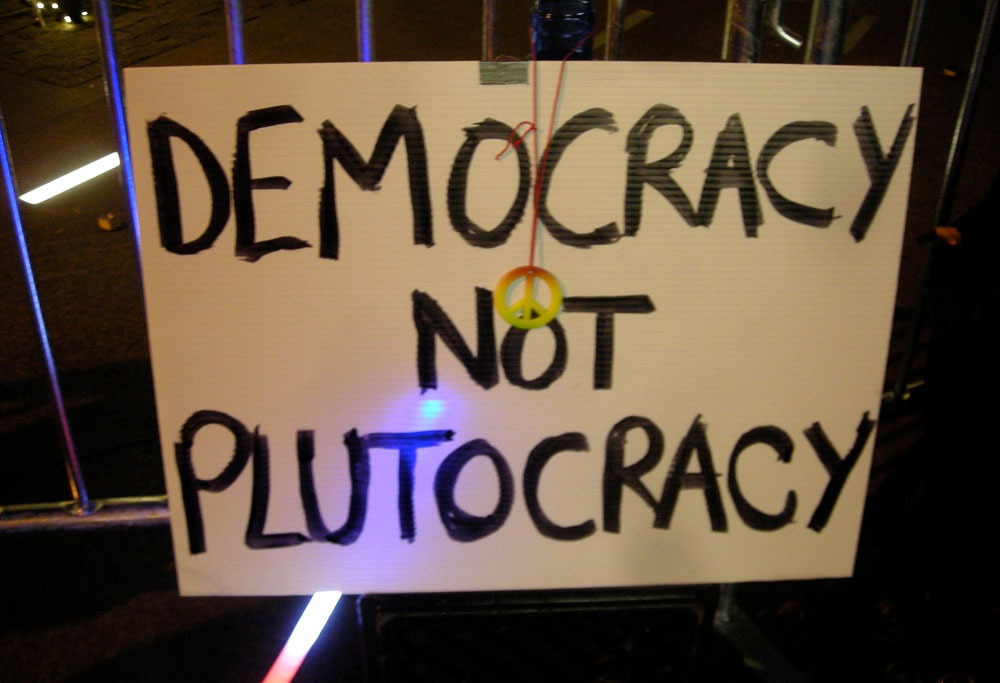
November 30, 2019; Axios
Nationally and globally, we see a long list of pressing, daunting challenges: an environmental catastrophe just over the horizon, resurgent racism, a changing world economy that seems to include fewer jobs that can pay a respectable wage, and the growing divide between the very rich and the rest of society. Solutions are hard to find, will require significant amounts of resources, and may demand changes in the ways we live our lives. Who has the responsibility, wisdom, and capability to lead us forward? Who can ensure we have the needed resources to take on big challenges? Is that not the work of democratic governments, with the nonprofit sector and philanthropists playing a supportive role?
In a late October 2019 conversation with Forbes, Josef Stadler, the head of Ultra High Net Worth at UBS, offered a vision of an emerging new world that sees the traditional role of government replaced by the efforts of small number of very wealthy men and women. “We’re going to see the return of something that went away at the end of the 19th century,” Stadler said, “the reemergence of a benevolent aristocracy.” In the future he sees, “those who benefit most—the entrepreneurs—will substitute for public institutions when it comes to the big questions of our lifetime. They have the money.”
This builds on a growing belief that governments are inefficient and unwieldly and cannot be trusted to use funds wisely and make good decisions. Nor can they be as creative and innovative as private organizations can be. Progressive tax systems, then, should be opposed, since they just give money to governments that will spend it badly. Better, as billionaire Michael Dell suggests, to allow those who have been successful to control how their funds are spent, replacing public policy with private wisdom.
Rhodri Davies of the Charities Aid Foundation told Forbes that “people who have made lots of money genuinely think that they are better placed than the government to decide what to do with it in order to help society. And there’s a large amount of egotism in that.”
If those with wealth were all doing what this argument says they can do, this might make sense. But they do not give enough, and they choose their priorities badly. For instance, in 2010, Bill Gates and Warren Buffett tried to put this philosophy into action when they asked their fellow billionaires to join them in the Giving Pledge, committing “to giving more than half of their wealth to philanthropy or charitable causes either during their lifetime or in their will.” No process of prioritization was created to guide what was hoped to be a significant new pool for philanthropic investment. Despite the significant amount of fanfare this effort received, to date, only 204 men and women have stepped forward, a small segment of the more than 2,000 billionaires across the globe who were asked.
Sign up for our free newsletters
Subscribe to NPQ's newsletters to have our top stories delivered directly to your inbox.
By signing up, you agree to our privacy policy and terms of use, and to receive messages from NPQ and our partners.
Hedge-fund investor Robert Wilson, according to Forbes, told Gates that his pledge would result in the creation and growth of charitable foundations rather than an increase of giving to operating charities. “Most billionaires,” says Wilson, “hate giving large sums of money away while alive and instead set up family-controlled foundations to do it for them after death.” And with no mechanism in place to hold pledge signers to their word, there is no guarantee that their promises will be honored.
What’s more, without a public mechanism to generate funds needed for important human problems, money’s not going where the need is critical. As Axios recently noted, leaving social problems to the whim of individuals can be risky: “In recent years, less than 10 percent of donations from Silicon Valley…have gone to local nonprofits, and less than half of that has gone to groups like food banks that tackle community needs.” Building university endowments and building new facilities remain more popular than attacking the more difficult problems right next door.
Two of the world’s wealthiest individuals, Elon Musk and Jeff Bezos, have chosen to make space exploration their priority. According to a recent Axios profile, Musk, who has signed the Giving Pledge, invested $100 million to launch SpaceX. His charitable foundation has, over the last 15 years, given only a total of $54 million. NPQ previously had noted that Bezos, who has lately made significant gifts to organizations serving the homeless and providing early childhood education, sees investment in space exploration as paramount. “The only way that I can see to deploy this much financial resource is by converting my Amazon winnings into space travel…and I plan to continue to do that for a long time.”
Great wealth provides a platform from which personal vision and belief can be powerfully launched. But great wealth does not guarantee competence, wisdom, or effectiveness. The problem of reliance on the wisdom of the few is that it lacks public accountability. Politicians are accountable to the electorate; governments are directly accountable to their constituencies. As imperfect as that may seem, it does provide a mechanism sorely missing from the world of big philanthropy.
The nonprofit community may find this a difficult field to enter. Supporting the primacy of government and fair taxation may put them in direct opposition to the donors upon which they depend. In the short term, this kind of alienation is a concern. But it pales in the face of the long-term price of a disempowered democratic government. Once the checks and balances only government can ensure are gone, nonprofits will lose the very soil where their roots must sink.—Martin Levine













